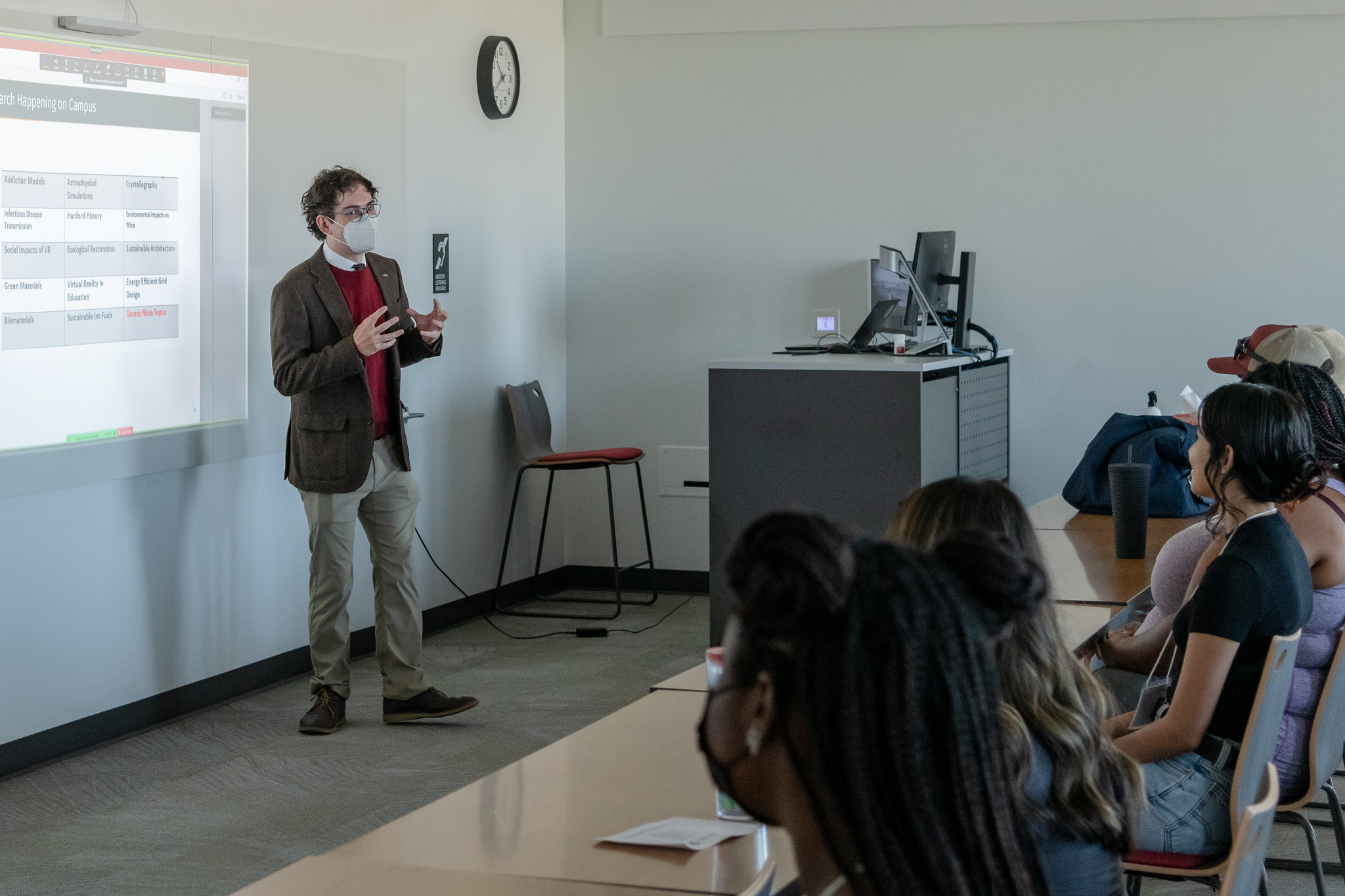Washington State University (WSU) Tri-Cities in Richland, Washington, is a leading public research institution with a focus on energy, environment, and agriculture that delivers career-connected learning and innovative research to address economic and social challenges.
To remediate the equity gaps that historically minoritized, first-generation, and female students have experienced in postsecondary education, WSU Tri-Cities established a program to help its faculty members support them. The university’s Equity Academy engages participating faculty in a collaborative learning experience where they evaluate their own data to assess the magnitude of these gaps in their courses. Using these data and pedagogical interventions, they identify the strengths, needs, and opportunities that will allow them to better serve Latinx, Black, Indigenous, first-generation, and female students.
WSU Tri-Cities recognizes that disparities in college access, enrollment, and completion persist, and differences in college enrollment and completion among historically marginalized and white populations have widened across the nation. For example, national estimates of retention in STEM majors hover at 40%, and often these losses are disproportionately greater among women and students of color. WSU Tri-Cities’ decision to commit to addressing these equity gaps was based on the diverse composition of its student population—42% Latinx, 46% first generation, and 60% women. Its goal is to achieve equity in outcomes for these groups as well as Black and Indigenous students in attainment, retention, and access to opportunities such as internships, undergraduate research, and high-value degrees such as in STEM fields. University officials hope the Equity Academy will empower faculty members to develop and sustain practices that create the equitable conditions for the success of these students. In turn, current and prospective students and their families can be confident in the value of their investment in WSU Tri-Cities and the improvement in social mobility as students graduate with market-ready experiences.
The Methodology
For the past year and a half, WSU Tri-Cities has been implementing recommendations from the American Association of State Colleges and Universities, the Center for Urban Education, and Excelencia in Education to create its Equity Academy. A team of faculty, staff, and administrators used disaggregated course data from Latinx, Black, Indigenous, first-generation, and female students to focus on the extent of the equity gaps and provide a baseline from which progress can be measured.
The Equity Academy’s two-year internal program is broken down into three phases in order to achieve meaningful change. During Phase 1, participating faculty members, referred to as equity fellows, meet to focus on recognizing systemic issues related to diversity, equity, and inclusion. They also analyze their own disaggregated class data as it relates to equity gaps among their students. In Phase 2, fellows work with each other and the program director to create a customized equity intervention plan. The final phase involves fellows putting into action and practice the skills and resources gained through the academy. After one year of implementing these interventions, university officials plan to reevaluate equity gaps and assess any meaningful reductions in disparities when compared with the established baseline. Through meaningful, data driven change, officials hope university faculty can create an inclusive educational experience that leverages the strengths and resilience of WSU Tri-Cities student population.
The Impact
WSU Tri-Cities’ Equity Academy is halfway through its two-year cycle. The inaugural cohort of faculty members were nominated based on a range of teaching criteria, including priority for lower-division courses for first- or second-year students who are nonmajors, high enrollment classes, and classes in which high numbers of students historically receive a D, receive an F, or withdraw. This cohort is currently in Phase 3. Initial findings are expected to be available in spring or summer 2023.
Key Takeaways
Change requires meaningful commitment to action. WSU Tri-Cities recognized that using an individual, disaggregated data-driven approach might be met with some resistance. Nonetheless, the university is resolute in its commitment to equitable student learning and has created short-, mid-, and long-term plans for the Equity Academy and other student-centered initiatives. The Equity Academy program has been gaining momentum since its inception and represents WSU Tri-Cities’ commitment to action.
Their takeaway message is that change is hard, but worth it. To facilitate the transformational individual and institutional change WSU Tri-Cities is striving for, there were bound to be hurdles of all sorts—expected and unexpected. Thus, the university’s goal has been to learn from any setbacks, make necessary changes to its process, and keep pushing for equitable education.
